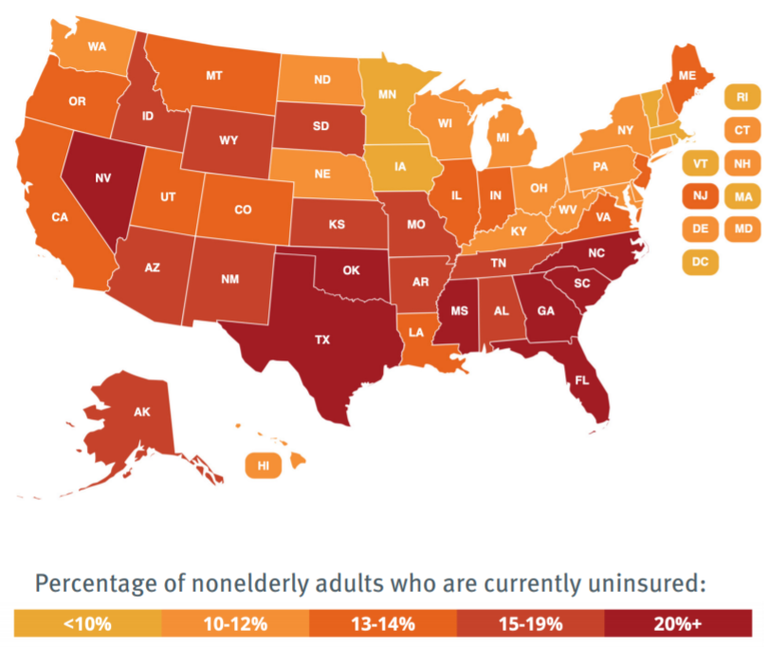The number of Massachusetts residents without health insurance — normally the lowest rate of any state — has almost doubled as a result of record-high unemployment rates, according to a report by a national advocacy group.
Families USA, a Washington, D.C., advocate for health care consumers, estimates 159,000 Massachusetts workers have lost their health insurance when they’ve lost their job in the past few months. Because Massachusetts had so few unemployed adults to begin with, that would nearly double the ranks of such people in Massachusetts, by far the highest proportionate increase in the country.
Families USA estimates that 8% of Massachusetts adults now lack health care. The rate in 2018 was 4%, according to the group. According to the U.S. Census, the rate was 2.8%, easily the best in the country.
Some states are now seeing uninsured ranks multitudes higher than in Massachusetts. In Texas, the rate is estimated at 29%, and in Florida, it’s 25%. Those estimates were made for May, before those states found themselves at the center of the latest surge of the coronavirus pandemic, which may affect employment numbers since then. Among other states, Georgia, Mississippi, Nevada, North Carolina, Oklahoma and South Carolina also have rates at or above 20%. Five states — Florida, Georgia, Mississippi, Oklahoma and Texas — had rates that high before the pandemic hit, leaving their relative increase now appearing far better than in Massachusetts and other states with high rates of adults with health insurance, including Rhode Island and Vermont.
Families USA estimated nationally nearly 5.4 million people have lost insurance due to job losses between February and May, a 21% increase. That far exceeds the highest previous mark in the past four decades of 3.9 million who became uninsured during the Great Recession in 2008 and 2009, the group said. Those figures don’t include workers’ family members who may have also lost their insurance but whose numbers couldn’t reliably be estimated.

